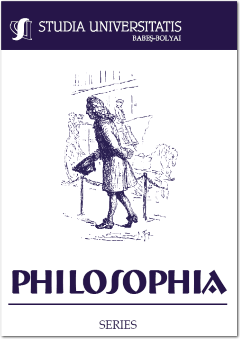PHENOMENOLOGY AND IMAGINATION IN HEIDEGGER’S INTERPRETATION OF KANT
PHENOMENOLOGY AND IMAGINATION IN HEIDEGGER’S INTERPRETATION OF KANT
Author(s): Zsuzsanna Mariann LengyelSubject(s): Philosophy
Published by: Studia Universitatis Babes-Bolyai
Keywords: imagination; schemes; thought; understanding; Kant; Heidegger; phenomenology; unconscious.
Summary/Abstract: The purpose of my contribution is to provide an overview of development of Heidegger’s account of imagination with a special focus to the affinity between phenomenology and psychology. (I.) Firstly, I reconstruct how – by his reading Husserl and Aristotle – the early Heidegger got to know the function of imagination as it can open the realm of the things themselves. (II.) Secondly, I investigate that in his Kant-book, Heidegger gave up his plan to further think the viewpoints envisioned by Husserl and the Neo-Kantians, and he entirely transformed his previous concept of imagination by the chapter on Schematism. My core thesis is that Heidegger’s account of imagination is concerned with the emergence of schemes of our thinking, that is to say, Heidegger went beyond the psychological Kant-interpretation, and at the same time he turned to discover the field of phenomenological unconscious.
Journal: Studia Universitatis Babes-Bolyai - Philosophia
- Issue Year: 63/2018
- Issue No: 1
- Page Range: 59-80
- Page Count: 22
- Language: English

